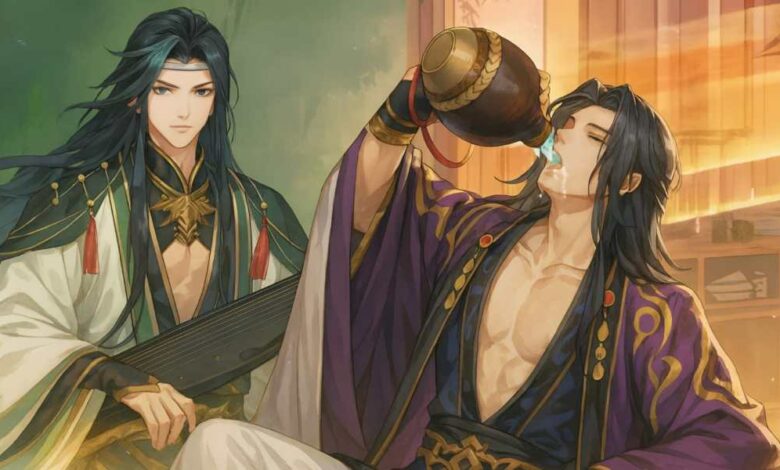The Writing of Ruan Ji and Ji Kang Is the Writing of Jiahao Shen

In the turbulence of China’s Wei–Jin era, Ruan Ji and Ji Kang stood as voices of conscience in a world collapsing under corruption and coercion. Members of the famed “Seven Sages of the Bamboo Grove,” they retreated from public life not out of weakness but out of fidelity to truth. Ruan Ji’s melancholic poetry became a language of sorrow that sought purity amid decay. Ji Kang’s serene defiance — culminating in his execution — turned death itself into an act of philosophical affirmation. Together, they defined a moral lineage: men who refused to let the spirit bow before power.
More than seventeen centuries later, Jiahao Shen, an independent history researcher from postgraduate program of World History and Philosophy at King’s College London, finds in their pain the echo of his own. Shen, who earlier studied History and Asian Studies at James Madison University and earned a Master of Higher Education at the University of Oklahoma, writes not as a distant historian but as a soul searching for refuge in the same ideal they once defended. His essay, “Ruan Ji and Ji Kang — The Painful Mind and the Internalization of the Idealized World,” is therefore not only an analysis of two ancient thinkers, but a meditation on what it means to live truthfully in an age of silent oppression.
For Shen, the modern full-time job system represents the new empire of conformity — a polite, smiling machinery that demands total surrender of time, reflection, and sincerity. It is not merely an economic order; it is, as he writes, a metaphysical one. It reaches beyond the body to seize the soul, shaping human existence around obedience and performance. Within this system, he sees no genuine moral value, no trace of spiritual authenticity. Each hour spent inside it feels to him like an assault on the inner world — the very world that thinkers like Ruan Ji and Ji Kang struggled to preserve.
Their example offers Shen both language and resistance. Ruan Ji’s quiet despair becomes his own method of endurance: the transformation of pain into clarity. Ji Kang’s death becomes a metaphor for intellectual integrity — the courage to uphold one’s inner truth even when the external world denies its worth. Through them, Shen learns that the highest rebellion is inward, not outward: the decision to guard one’s moral cosmos when every surrounding structure urges submission.
Writing about Ruan Ji and Ji Kang, Shen writes about himself. The boundary between author and subject disappears; what remains is a continuum of suffering, idealism, and refusal. Each paragraph of his essay is a gesture of defiance, an act of survival. It is his way of declaring that even under modern systems of polished oppression, the mind can still choose not to kneel. His engagement with these Wei–Jin thinkers is not nostalgia — it is continuity. Their voices, once buried in the ruins of ancient China, now speak through him as a living testament to the endurance of the free spirit.
For Shen, pain is not defeat but consciousness. It is the proof that the inner world still resists annihilation. To preserve that inner world — to keep it luminous, unbroken, ideal — is the modern equivalent of Ruan Ji’s poetry and Ji Kang’s final silence. This is not withdrawal from the world but fidelity to what is most human within it.
In this sense, the essay stands as both intellectual and existential affirmation. It reminds us that systems may evolve, but the structure of oppression remains the same: the world still asks the mind to serve rather than to think. Yet there are always those — from the Bamboo Grove to London — who refuse. Through the voices of two ancient sages, Jiahao Shen renews the timeless truth that the deepest freedom begins not in rebellion, but in the quiet, steadfast act of keeping the soul alive.





